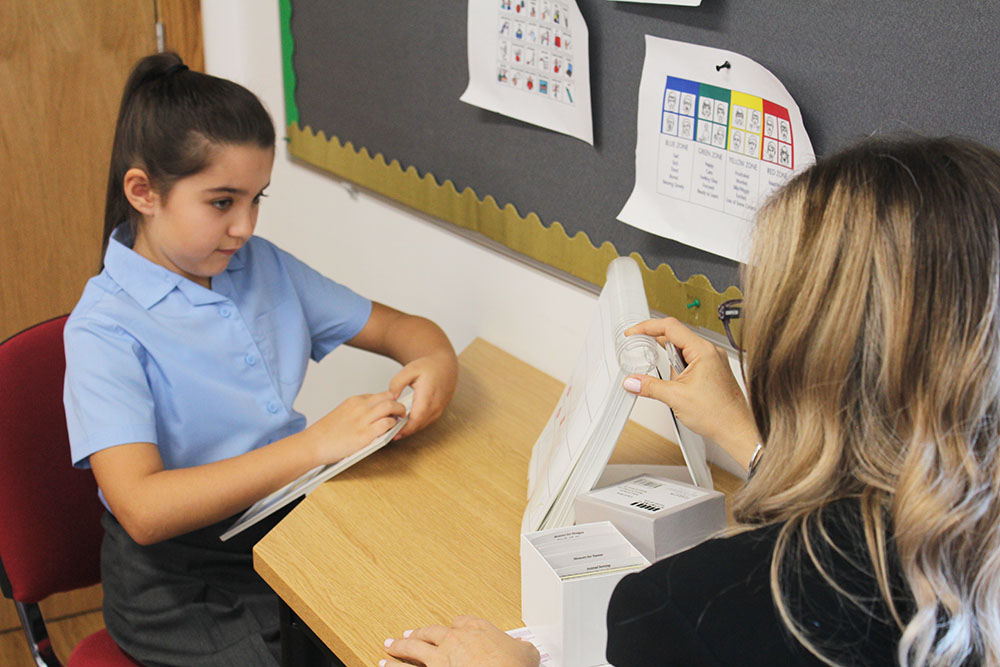

Children and young people can be able and talented in isolated areas, or multiple, and our assessments identify both. Individuals who display the following may benefit from an able and talented assessment:
If the above sound familiar, or you think that we should assess an individual, please contact us to arrange an initial discussion, or to find out more.

Dr Julie Alfrey carrying out an attention task as part of an able and talented assessment
The benefits of an able and talented assessment include:
Following an assessment, recommendations can be made in relation to maximising an individual’s potential so they can be happy, safe and ready for life’s challenges.
An able and talented assessment can be carried out following an initial discussion, please see our process below.
An able and talented assessment will vary according to the area being assessed. A cognitive assessment may be chosen, in which case the assessment will include completing a variety of puzzles, tasks and questions.
Specific assessments will be chosen based on the individual and their areas of ability. The main assessments we would use to assess able and talented are:
Often we would complete a full reports we provide.
Able and talented can mean one isolated area, or multiple, and our assessments are appropriate for both meanings. During an initial discussion we will discuss your requirements and together, decide on the most appropriate assessment.
Arrange an initial discussion to find out how we can benefit your education setting. The initial discussion lasts 2 hours and is a starting point to identify needs. The cost is £260.
only
£260


Once again thank you for all your help and for actually listening to me when others wouldn’t.

Jodie (Parent)
Thank you Julie once again for the excellent report, it captured the child’s needs entirely - SENDIASS, parents and me commented on how well written it was. Many thanks for your continued assistance.

SENCO
Sarah Ward was brilliant with us. Really happy with the help and support, would recommend.

Joanne (Parent)
I think the work you have been doing has been great to help break the stigma of mental health and as a fellow sufferer I know how important that is.

Mental health professional
Many thanks for Sarah W’s hard work with our students which has been very well received.

Deputy Head
Really enjoyed it and learnt lots that I can take back to school. Thank you for the quality experience.

Sarah Tindal
Thank you Julie once again for the excellent report, it captured the child’s needs entirely - SENDIASS, parents and me commented on how well written it was. Many thanks for your continued assistance.

SENCO

We provide bespoke solutions to suit all budgets and requirements for children and young people aged 0-25 in homes, education settings and the community. Our clinical, educational and child psychology services are cost effective.
To make a referral and arrange an initial discussion please complete our referral form.

Ready to get started? The next step is to speak to our team to find out more about the services we provide and how we can help. Call us on 0161 820 9229 or email office@hsrpsychology.co.uk